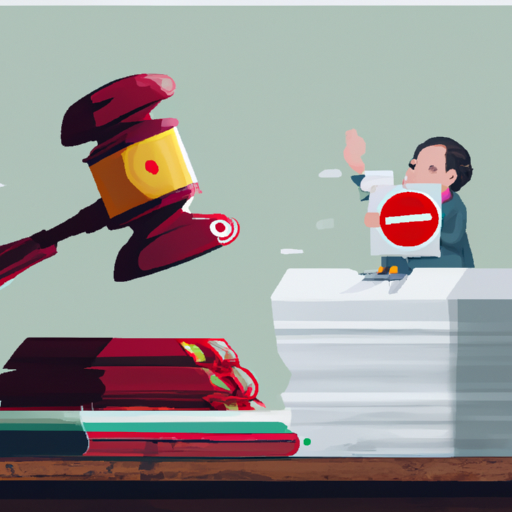
Resolves YES if the bill becomes a law.
"A bipartisan group of senators introduced a sweeping bill Tuesday that would allow the federal government to regulate and even ban foreign-produced technology, including TikTok.
The bill, the Restricting the Emergence of Security Threats that Risk Information and Communications Technology Act, or RESTRICT Act, would give the secretary of commerce broad power to regulate tech produced by six countries that have adversarial relationships with the U.S.: China, Cuba, Iran, North Korea, Russia and Venezuela.
The White House endorsed the RESTRICT Act on Tuesday, calling it 'a systematic framework for addressing technology-based threats to the security and safety of Americans.'"
- NBC https://www.nbcnews.com/tech/tech-news/restrict-act-bill-tiktok-rcna73682
https://www.congress.gov/bill/118th-congress/senate-bill/686/text?s=1&r=15
Mar 28, 6:39pm: Will the RESTRICT Act pass? → Will the RESTRICT Act pass? (TikTok)
Mar 28, 6:40pm: Will the RESTRICT Act pass? (TikTok) → Will the RESTRICT Act be passed? (TikTok)
🏅 Top traders
| # | Trader | Total profit |
|---|---|---|
| 1 | Ṁ231 | |
| 2 | Ṁ214 | |
| 3 | Ṁ103 | |
| 4 | Ṁ97 | |
| 5 | Ṁ64 |
People are also trading
summary of summaries:
The bill overall claims to allow the Secretary of Commerce, in consultation with other relevant executive department and agency heads, to identify, prevent, and mitigate risks posed by transactions and holdings related to information and communication technology products and services, including addressing risks associated with foreign adversaries. It aims to prioritize transactions that may pose a risk to national security and critical infrastructure. The bill also establishes a process for designating or removing the designation of foreign adversaries and provides enforcement mechanisms, investigations, penalties, and actions the government can take to ensure compliance with the Act.
In general, what the bill claims to allow aligns with what it actually allows. However, there are several potential ways in which the bill could be used to harm citizens:
Broad definitions and scope: The definitions provided in Section 2 could have implications for citizens, depending on how the bill's provisions are applied. Broad definitions like "covered holding," "covered transaction," and "foreign adversary" might lead to scrutiny of a wide range of dealings, potentially affecting citizens' privacy or business interests.
Overreach of government authority: The broad scope of priority areas and considerations in Section 5 could lead to excessive scrutiny of transactions or industries, negatively impacting businesses and innovation. Additionally, privacy concerns might arise, particularly regarding transactions involving large amounts of personal data.
Designation or removal of foreign adversaries: In Sections 6 and 7, the process for designating or removing foreign adversaries could lead to unnecessary restrictions and tensions between countries or potential security risks if not based on sufficient evidence or proper justification.
Wide range of authority for the Secretary: Sections 8 and 9 grant the Secretary considerable authority and discretion in implementing the Act, which could potentially lead to overreach or misuse of power, infringing on individual rights or privacy. The bill also allows the Secretary to disclose confidential information under various circumstances, possibly resulting in unintended consequences such as privacy violations or release of sensitive information.
Enforcement mechanisms and penalties: Sections 10 and 11 provide federal agencies and officers with extensive powers to inspect, search, detain, and seize items or records, which could potentially be abused or misused. Subpoena authority, harsh penalties, and lack of clarity on some provisions could create fear and discourage legitimate business activities or result in citizens being unfairly targeted or penalized.
Limited scope for judicial review: Sections 12 to 15 establish a limited scope for judicial review, potentially limiting citizens' ability to challenge actions taken under the Act. Handling sensitive and classified information in an ex parte and in camera manner may hinder petitioners from fully accessing evidence used in a decision. The exemption from the Paperwork Reduction Act and FOIA could lead to increased paperwork burden and limit transparency and access to information regarding government actions.
Overall, while the bill aims to address national security concerns related to transactions and holdings involving information and communication technology products and services, the broad scope and authority granted to the Secretary, the potential overreach of government authority, and the limited scope for judicial review create risks for citizens. These risks include privacy violations, stifling of innovation, and infringement on individual rights and civil liberties.